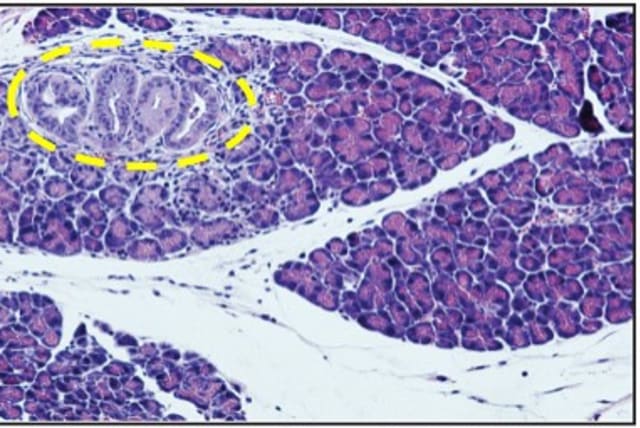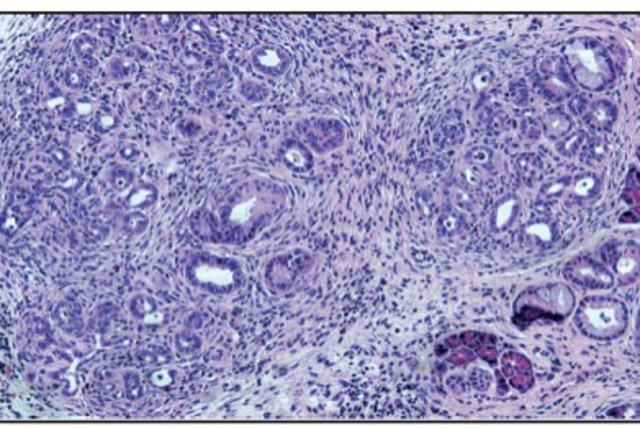Oral bacteria can speed up development of pancreatic cancer - study

The significant connection sheds light on a previously recognized link between oral health and pancreatic cancer.
Bacteria in the mouth, plaque that sticks to the teeth and gums, and shields pathogens don’t only cause tooth loss.
They are known to raise the risk of rheumatoid arthritis, dry mouth, autoimmune Sjogren’s syndrome, heart disease, stroke, diabetes, and even eating disorders.
Therefore, it is vital to create and maintain a healthy mouth by brushing, flossing, and other means to get rid of bacteria that cause gingivitis and periodontitis.
Now, a new study at the Institute of Biomedical and Oral Research of the Hebrew University-Hadassah Faculty of Dental Medicine unveils a significant connection between oral bacteria and the development of cancer in mice and sheds light on a previously recognized link between oral health and pancreatic cancer – one of the deadliest malignancies.
Proof of a link between oral bacteria and pancreatic cancer
Prof. Gabriel Nussbaum and his team recently published groundbreaking research in the journal Gut that uncovered a pivotal link between oral bacteria and the onset of pancreatic cancer in mice.
Their study delves into the intricate relationship between oral microbiota, including notably Porphyromonas gingivalis, and the acceleration of pancreatic cancer development, offering crucial insights into early detection, prevention, and potential therapeutic avenues.
They published their study in the journal Gut under the title “Oral bacteria accelerate pancreatic cancer development in mice.” Pancreatic ductal adenocarcinoma (PDAC) has been connected to the presence of Porphyromonas gingivalis, a prevalent anaerobic bacterium (that doesn’t need oxygen to live) known for its association with periodontal disease.
Based on epidemiological clues, Nussbaum's team embarked on a journey to elucidate the potential of P. gingivalis in driving the progression of pancreatic cancer.
Their research entailed a comprehensive examination of P. gingivalis translocation from the oral cavity to the pancreas using mouse models.
By introducing the bacterium to genetically engineered mice predisposed to PDAC, the team uncovered compelling evidence of accelerated cancer development.
Key findings from the study indicate that viable P. gingivalis was found in the pancreas of healthy mice after applying it to the gums, and prolonged exposure caused changes in the pancreas, affecting its microbial balance.
In addition, applying P. gingivalis orally sped up the progression from early pancreatic abnormalities to pancreatic cancer in mice with a specific genetic mutation. The research also showed that this genetic mutation helped P. gingivalis survive inside cells, and the bacteria supported the survival of pancreatic cancer cells even when conditions were tough.
Nussbaum and his colleagues’ discoveries emphasize a direct link between P. gingivalis and the development of pancreatic cancer in mice, offering significant insights into how this disease progresses.
The bacteria migrated from the oral cavity to the rodents’ pancreas.
“The study underscores the significance of considering oral health in understanding and tackling pancreatic cancer,” said Nussbaum.
“By exploring the role of bacteria like P. gingivalis, we’re not only shedding light on potential risk factors but also uncovering new avenues for intervention and treatment.”
The findings suggest that there’s a real possibility that gum disease could be connected to the risk of pancreatic cancer, stressing how bacteria directly affect this link.
There is potential in focusing on bacteria within cells as a way to lower the risk of pancreatic cancer or to improve existing treatments for it,” the team concluded. “These insights open up avenues for future research and could lead to more effective strategies for preventing and treating pancreatic cancer.”
Epidemiological studies highlight an association between pancreatic ductal adenocarcinoma (PDAC) and oral carriage of the anaerobic bacterium Porphyromonas gingivalis, a species highly linked to periodontal disease.
We analyzed the potential for P. gingivalis to promote pancreatic cancer development in an animal model and probed underlying mechanisms.
Jerusalem Post Store
`; document.getElementById("linkPremium").innerHTML = cont; var divWithLink = document.getElementById("premium-link"); if (divWithLink !== null && divWithLink !== 'undefined') { divWithLink.style.border = "solid 1px #cb0f3e"; divWithLink.style.textAlign = "center"; divWithLink.style.marginBottom = "15px"; divWithLink.style.marginTop = "15px"; divWithLink.style.width = "100%"; divWithLink.style.backgroundColor = "#122952"; divWithLink.style.color = "#ffffff"; divWithLink.style.lineHeight = "1.5"; } } (function (v, i) { });

